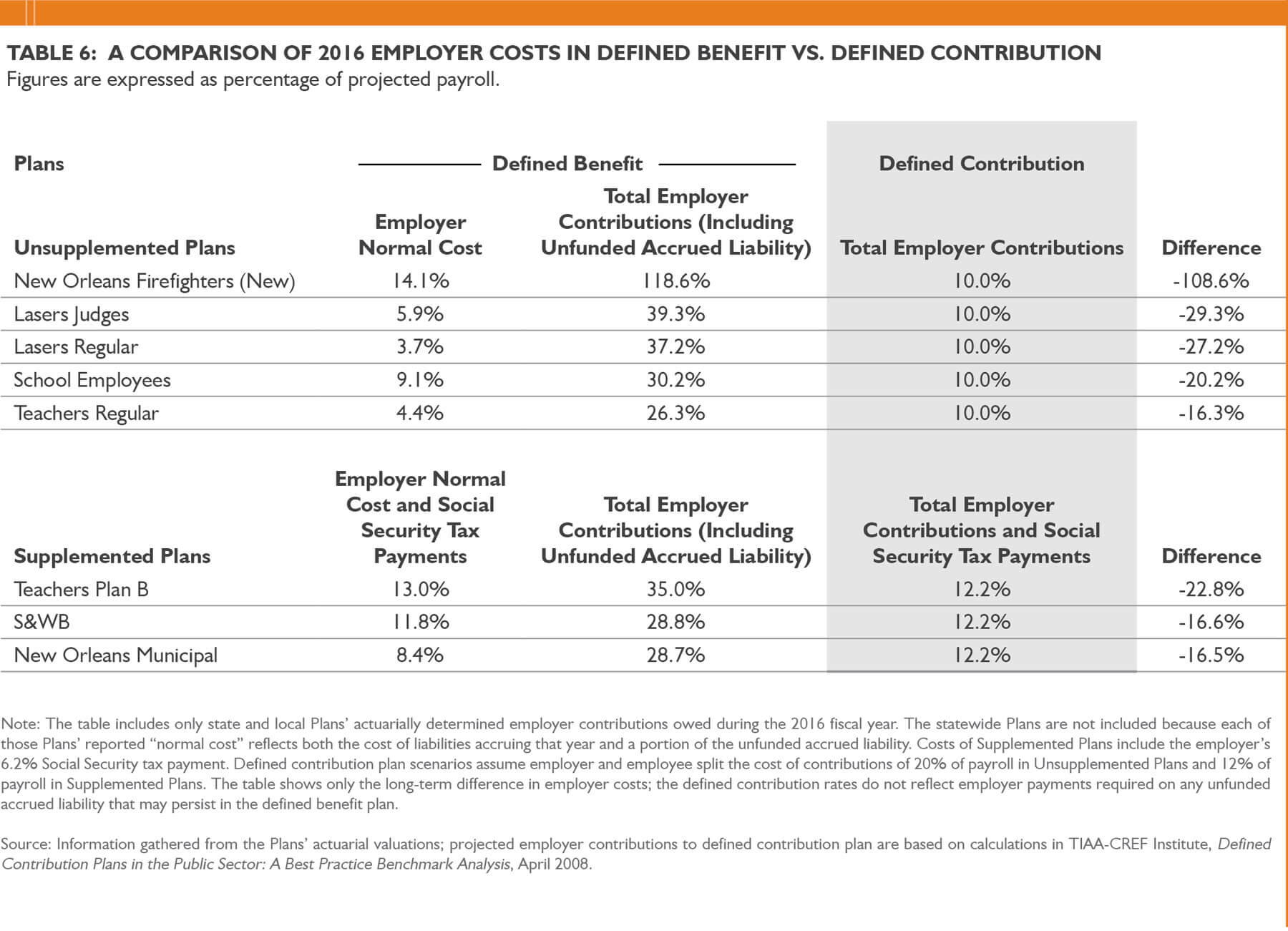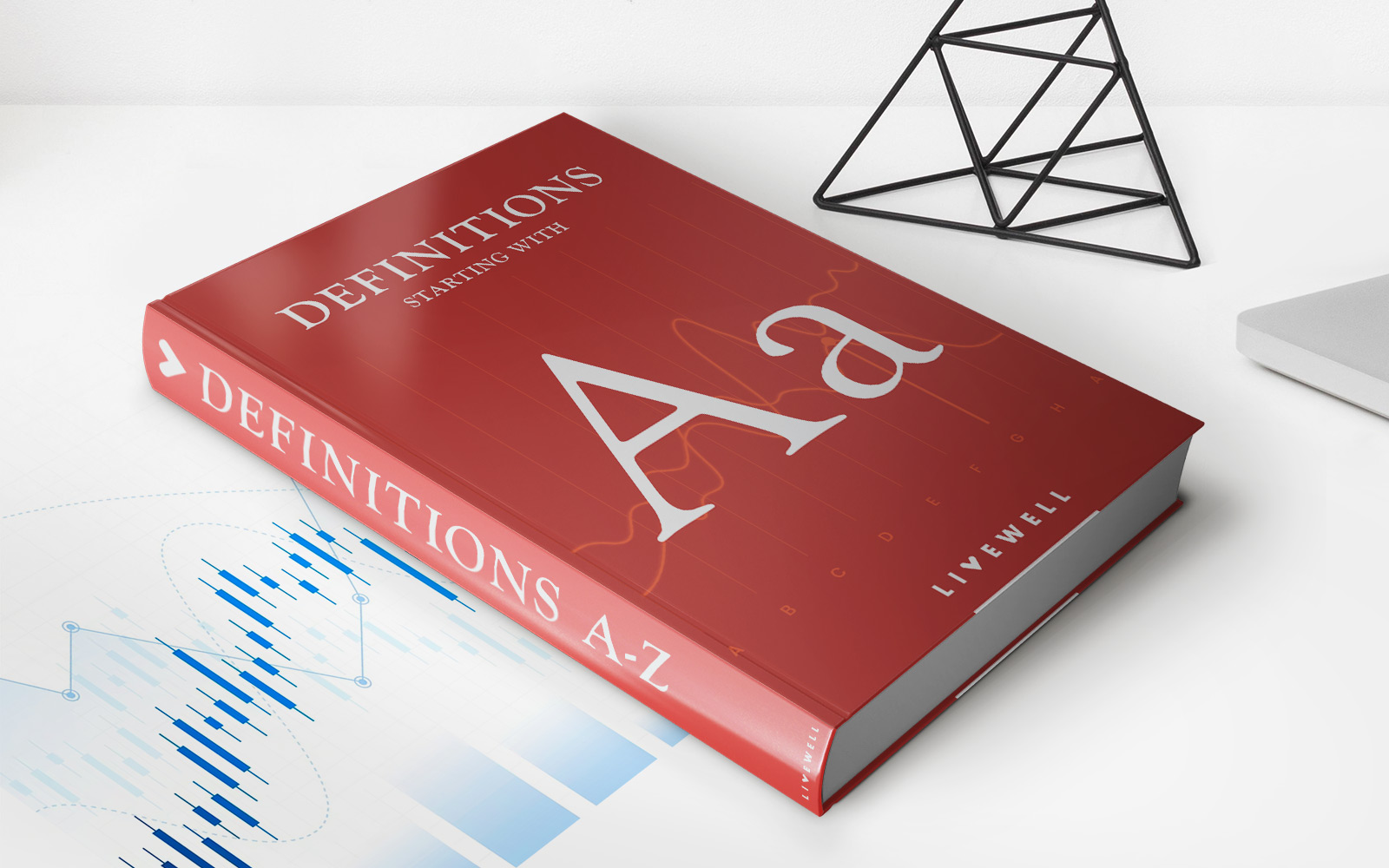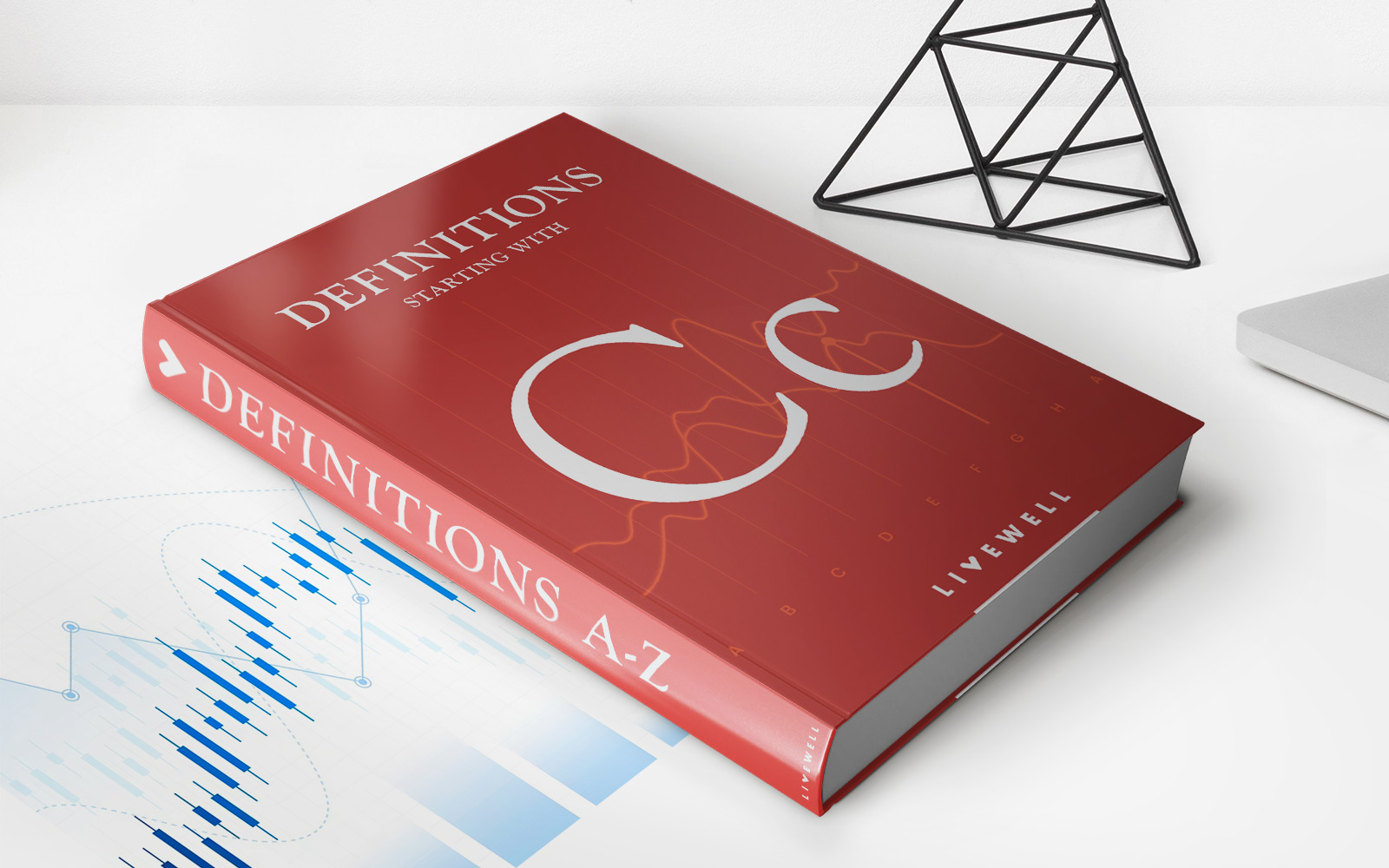Home>Finance>What Is The Difference Between Estate Planning And A Will


Finance
What Is The Difference Between Estate Planning And A Will
Published: January 3, 2024
Learn the distinction between estate planning and a will in the realm of finance, and get a clear understanding of how they both play a vital role in securing your financial future.
(Many of the links in this article redirect to a specific reviewed product. Your purchase of these products through affiliate links helps to generate commission for LiveWell, at no extra cost. Learn more)
Table of Contents
Introduction
Estate planning and creating a will are two important aspects of financial planning that often go hand in hand. While they are both related to the distribution of assets after an individual’s death, there are distinct differences between estate planning and a will. Understanding these differences is crucial for individuals looking to secure their financial future and provide for their loved ones.
Estate planning is a comprehensive process that involves the management and distribution of an individual’s assets during their lifetime and after their death. It encompasses a variety of legal and financial tools to ensure the smooth transfer of assets, reduce taxes, and protect the interests of beneficiaries. On the other hand, a will is a legal document that outlines an individual’s wishes regarding the distribution of their assets and the care of their dependents after their death.
While a will is an essential component of estate planning, it is important to recognize that estate planning is a broader concept that includes a range of strategies beyond just creating a will. Estate planning can include the establishment of trusts, naming beneficiaries for retirement accounts and life insurance policies, making arrangements for incapacity, and minimizing estate taxes.
Creating a will, on the other hand, is a more focused aspect of estate planning that deals specifically with the distribution of assets. A will allows individuals to specify how their assets should be distributed, name an executor to administer their estate, and designate guardians for their minor children. It provides a legal framework for the efficient and orderly distribution of assets, ensuring that the individual’s wishes are carried out.
Now that we have a basic understanding of estate planning and a will, let’s delve deeper into the key differences between the two and explore the importance of each in securing one’s financial future.
Understanding Estate Planning
Estate planning is a comprehensive process that involves organizing and managing one’s assets during their lifetime and after death, with the goal of ensuring the smooth transition of assets to intended beneficiaries and minimizing any potential disputes or tax liabilities. It goes beyond just creating a will and encompasses various legal and financial strategies to protect and preserve one’s wealth.
One of the primary objectives of estate planning is to determine how an individual’s assets will be distributed upon their death. This includes not only physical assets such as properties, investments, and personal belongings but also financial assets like bank accounts, retirement funds, and insurance policies. Estate planning allows individuals to specify their preferences and intentions for the distribution of these assets.
Another crucial aspect of estate planning is the consideration of estate taxes. Depending on the size of an individual’s estate, there may be estate tax implications upon their death. Estate planning strategies can help minimize these taxes by utilizing legal tools such as trusts and gifting strategies. By strategically structuring their estate, individuals can ensure that more of their assets pass on to their loved ones rather than being eroded by taxes.
Furthermore, estate planning addresses the possibility of incapacity due to illness, disability, or old age. Through documents such as powers of attorney, healthcare proxies, and living wills, individuals can designate trusted individuals to make financial and medical decisions on their behalf if they become unable to do so themselves. This not only provides peace of mind but also ensures that the individual’s wishes are followed during times of incapacity.
Family dynamics and personal circumstances also play a significant role in estate planning. Individuals may have specific concerns or objectives related to their family situation, such as providing for minor children, protecting assets from creditors or divorcing spouses, or ensuring the care of dependents with special needs. Estate planning allows individuals to address these specific concerns and tailor their plan accordingly.
Overall, estate planning is a proactive and comprehensive approach to managing one’s assets and financial affairs during life and after death. It considers not only the distribution of assets but also tax implications, incapacity planning, and customization based on individual circumstances. By engaging in estate planning, individuals can gain control over their financial future and ensure that their loved ones are provided for according to their wishes.
Definition of a Will
A will, also known as a Last Will and Testament, is a legal document that outlines an individual’s wishes regarding the distribution of their assets and the care of their dependents after their death. It serves as a crucial part of estate planning and provides clear instructions on how an individual’s estate should be administered and divided among beneficiaries.
A will typically includes important details such as the identification of the individual, known as the testator, who is creating the will. It also names an executor, the person responsible for carrying out the instructions outlined in the will. The executor acts as a fiduciary, ensuring that the testator’s wishes are executed faithfully and efficiently.
Within a will, the testator specifies how their assets, including real estate, investments, personal belongings, and financial accounts, should be distributed upon their death. This can involve bequeathing specific assets to named individuals, making provisions for charitable donations, and providing for the care and support of minor children or dependents.
Additionally, a will can address other important matters such as funeral arrangements, the appointment of guardians for minor children, and the nomination of guardians for dependents with special needs. It provides an individual with the opportunity to make their intentions clear and minimize potential disputes among family members or other interested parties.
It’s important to note that a will only takes effect upon the testator’s death. Until then, they have the right to modify or revoke the will as they deem necessary. Changes to a will can be made through codicils, which are amendments to the original will, or by creating a new will entirely.
To ensure the validity of a will, certain legal requirements must be followed. These include the testator being of legal age, of sound mind, and signing the will in the presence of witnesses who also sign the document. The specific requirements may vary based on jurisdiction, so it’s important to seek legal guidance to ensure compliance with local laws.
A will is a fundamental part of estate planning, providing individuals with peace of mind that their wishes regarding the distribution of their assets and the care of their loved ones will be honored. It is a powerful tool for preserving family legacies, protecting assets, and providing for future generations.
Differences Between Estate Planning and a Will
Estate planning and creating a will are two interconnected concepts, but they have distinct differences in terms of scope and purpose. Understanding these differences is crucial for individuals seeking to navigate their financial and personal affairs effectively.
Estate planning is a comprehensive process that encompasses various legal and financial strategies to manage and distribute assets during an individual’s lifetime and after their death. It involves considerations such as tax planning, incapacity planning, and the establishment of trusts. Estate planning takes a holistic approach to ensure the smooth transfer of assets and the protection of a person’s financial well-being throughout their life.
On the other hand, a will is a legal document that specifically outlines an individual’s wishes regarding the distribution of their assets after their death. It is a crucial component of estate planning, but it is narrower in scope and focuses primarily on the distribution of assets. A will allows individuals to name beneficiaries, appoint executors, and make provisions for minor children or dependents.
The key differences between estate planning and a will can be summarized as follows:
- Scope: Estate planning covers a wide range of strategies and considerations beyond just asset distribution. It includes tax planning, incapacity planning, and the establishment of trusts. A will, on the other hand, is focused primarily on the distribution of assets and addressing specific issues such as guardianship and funeral arrangements.
- Flexibility and Control: Estate planning provides individuals with more flexibility and control over their financial affairs. It allows for the implementation of strategies to minimize taxes, protect assets, and ensure the smooth transition of wealth. A will provides instructions for the division of assets, but it may not have the same level of flexibility or offer the same level of protection and control as an estate plan.
- Legal Requirements: Both estate planning and creating a will have legal requirements that must be met. However, the specific requirements for a will may vary depending on the jurisdiction. Estate planning can involve more complex legal considerations, such as the establishment of trusts, which may require additional legal expertise.
- Continuity: Estate planning considers not only the transfer of assets after death but also ongoing management and protection of wealth during an individual’s lifetime. It provides a framework for addressing incapacity and ensures that there is a plan in place for the individual’s financial and personal affairs to be handled if they become unable to do so themselves. A will only becomes effective upon the death of the individual and does not address ongoing management or incapacity planning.
It is important to recognize that while a will is a crucial component of estate planning, estate planning goes beyond just creating a will. It involves a comprehensive strategy that addresses a wide range of legal and financial considerations to protect and preserve one’s assets and provide for their loved ones.
Importance of Estate Planning
Estate planning plays a vital role in securing one’s financial future and ensuring the smooth transfer of assets to intended beneficiaries. By engaging in estate planning, individuals can gain control over their financial affairs, protect their assets, and provide for their loved ones according to their wishes. The importance of estate planning can be understood through the following key points:
- Asset Distribution: One of the primary objectives of estate planning is to determine how an individual’s assets will be distributed upon their death. Without a properly executed estate plan, the distribution of assets may be subject to intestate laws, which vary by jurisdiction and may not align with the individual’s wishes. Estate planning allows individuals to designate beneficiaries, specify asset distribution, and minimize potential disputes among family members or other interested parties.
- Minimizing Taxes: Estate planning provides individuals with the opportunity to minimize estate taxes, which can significantly impact the overall value of an estate. Through strategic planning, individuals can employ legal tools such as trusts to help reduce the tax burden on their heirs and maximize the value of the assets transferred.
- Incapacity Planning: Estate planning not only addresses asset distribution after death but also incorporates plans for potential incapacity. By creating documents such as powers of attorney and healthcare proxies, individuals can designate trusted individuals to make financial and medical decisions on their behalf if they become unable to do so themselves. This ensures that their wishes are followed and that their affairs are handled in accordance with their desires.
- Protection of Assets: Estate planning allows individuals to protect their assets from potential risks such as creditors, lawsuits, and divorcing spouses. By employing certain legal and financial strategies, such as the creation of trusts, individuals can shield their assets and ensure that they are preserved for the intended beneficiaries.
- Provision for Minor Children: For individuals with minor children, estate planning is essential in providing for the care and support of their dependents. Through a will, individuals can name guardians for their children, establish trusts to manage their financial affairs, and specify their intended wishes for their children’s upbringing.
Overall, estate planning is a proactive and comprehensive approach to managing one’s financial affairs. It allows individuals to maintain control over their assets, protect their loved ones, and minimize potential disputes. By engaging in estate planning, individuals ensure that their wishes are carried out, their assets are preserved, and their loved ones are provided for according to their desires.
Benefits of Creating a Will
Creating a will is a critical aspect of estate planning that offers numerous benefits and provides peace of mind for individuals and their loved ones. While the specific advantages may vary depending on personal circumstances, the following highlights the key benefits of creating a will:
- Asset Distribution: One of the primary benefits of creating a will is the ability to have control over how your assets are distributed after your death. By clearly stating your wishes in a legally binding document, you can ensure that your assets go to the individuals or organizations you choose. Without a will, the distribution of your assets may be subject to intestate laws, which may not align with your desires.
- Naming of Beneficiaries: A will allows you to name specific individuals or organizations as beneficiaries of your assets. This includes family members, friends, charitable organizations, or even pets. You have the flexibility to determine the proportions in which your assets are divided among these beneficiaries, based on your wishes and personal relationships.
- Appointment of Executors and Guardians: Creating a will provides you with the opportunity to appoint an executor who will be responsible for ensuring that your wishes are carried out and that your estate is administered correctly. Additionally, if you have minor children, a will allows you to nominate guardians who will take care of them in the event of your passing. This ensures that your children are protected and cared for according to your wishes.
- Minimizing Family Conflict: A well-drafted will can help minimize potential conflicts and disputes among family members after your death. By clearly outlining your intentions and making your wishes known, you can reduce the likelihood of disagreements and legal challenges. This can help preserve family relationships and provide a smooth transition of assets.
- Providing for Special Circumstances: A will allows you to make provisions for any specific needs or circumstances that may require special attention. For example, if you have a family member with special needs, you can create a trust within your will to ensure their ongoing care and financial support. By addressing unique situations, you can provide for your loved ones in the most appropriate and considerate way.
Creating a will is a responsible step that not only protects your assets but also ensures that your loved ones are provided for according to your wishes. It provides clarity, reduces potential conflicts, and offers peace of mind knowing that your affairs are in order. Consulting with an experienced estate planning attorney can help you craft a will that meets your specific needs and ensures the efficient distribution of your assets.
Factors to Consider in Estate Planning
When engaging in estate planning, it is essential to consider a range of factors to ensure that your financial affairs are effectively managed and your wishes are carried out. While the specific factors may vary depending on your individual circumstances, the following highlights key considerations in estate planning:
- Asset Inventory: Before developing an estate plan, it is important to conduct a thorough inventory of your assets. This includes identifying your real estate properties, investment accounts, retirement funds, life insurance policies, and personal belongings. An accurate asset inventory will provide a clear picture of your estate and aid in determining how your assets should be distributed.
- Family Dynamics: Consider the dynamics within your family when creating an estate plan. Take into account the relationships between family members, their financial needs, and any specific circumstances that may require special attention. Addressing potential conflicts or unique situations will help ensure that your estate plan is tailored to meet the needs of your loved ones.
- Beneficiary Designations: Determine who you want to name as beneficiaries for your various accounts and policies, such as retirement accounts and life insurance policies. Review and update these beneficiary designations regularly to ensure they align with your current wishes and avoid unintended consequences.
- Financial Goals: Consider your financial goals and objectives when developing your estate plan. These goals may include minimizing estate taxes, preserving wealth for future generations, providing for charitable contributions, or protecting assets from potential risks. Having a clear understanding of your financial goals will guide the strategies implemented in your estate plan.
- Healthcare Decisions: Incapacity planning is an important aspect of estate planning. Consider creating legal documents such as a durable power of attorney for healthcare and a living will that outline your wishes regarding medical treatment and appoint trusted individuals to make healthcare decisions on your behalf if you become incapacitated.
- Guardianship for Minor Children: If you have minor children, it is crucial to designate guardians who will be responsible for their care in the event of your passing. Choose individuals who are capable, willing, and share your values to ensure that your children are cared for according to your wishes.
- Long-Term Care: Consider the potential need for long-term care and develop a plan to address it. This may involve exploring options such as long-term care insurance or setting aside funds specifically designated for future care needs.
- Business Succession: If you own a business, consider the future succession of the business in your estate plan. Determine whether you want the business to continue after your passing and put measures in place to facilitate a smooth transition, such as identifying potential successors or creating a buy-sell agreement.
Each individual’s estate planning needs are unique, and it is essential to consult with an experienced estate planning attorney or financial advisor to ensure that all relevant factors are considered. They can provide personalized guidance and help you develop a comprehensive estate plan that reflects your specific goals, protects your assets, and provides for your loved ones.
Factors to Consider in Creating a Will
Creating a will is an important part of estate planning that requires careful consideration of various factors. While the specific considerations may vary depending on personal circumstances and preferences, the following are key factors to consider when creating a will:
- Asset Distribution: Determine how you want your assets to be distributed after your death. Consider who you want to be the beneficiaries of your property, investments, personal belongings, and financial accounts. Think about the proportions in which you want your assets divided and any specific bequests you may want to make.
- Executor Selection: Choose an executor who will be responsible for carrying out the instructions outlined in your will. An executor should be someone you trust, who is organized, and capable of fulfilling the necessary duties. Discuss your choice with the person beforehand to ensure their willingness to take on the role.
- Guardianship for Dependents: If you have minor children or dependents with special needs, consider naming a guardian who will take care of them in the event of your passing. Choose someone who shares your values and whom you believe will provide a nurturing and supportive environment for your dependents.
- Funeral and Burial Wishes: Express your preferences regarding your funeral arrangements and burial or cremation. Consider whether you have any specific wishes concerning the type of service, location, or any other relevant details. Communicating these preferences in your will can help alleviate the burden on your loved ones during a difficult time.
- Contingency Planning: Anticipate potential circumstances that may affect the distribution of your assets. Consider what should happen if a beneficiary predeceases you or if there are changes in your family structure, such as marriages, divorces, or births. Create contingency plans to address these situations to ensure that your will remains relevant and effective over time.
- Charitable Contributions: If you have philanthropic intentions, consider including charitable contributions in your will. Identify the organizations or causes that you wish to support and outline the specific instructions for your donations. This allows you to leave a lasting impact and continue supporting causes dear to you.
- Review and Update: Regularly review and update your will as circumstances change. Life events such as marriage, divorce, the birth of children, or the acquisition of significant assets may necessitate updates to your will. Keeping your will current ensures that it accurately reflects your wishes and minimizes the potential for confusion or disputes in the future.
It is advisable to seek professional legal advice when creating a will to ensure that it complies with applicable laws and serves your objectives effectively. An experienced estate planning attorney can provide guidance tailored to your individual situation and help you create a comprehensive and legally sound will.
Seeking Professional Legal Advice
When it comes to the creation of a will and estate planning, seeking professional legal advice is highly recommended. While it may be tempting to rely on DIY templates or online resources, consulting with an experienced estate planning attorney can ensure that your wishes are properly documented, your assets are protected, and your loved ones are provided for according to your intentions.
Here are some reasons why seeking professional legal advice is important:
- Expertise and Knowledge: Estate planning attorneys specialize in the intricacies of estate planning law. They have the expertise and knowledge to guide you through the process, ensuring that all legal requirements are met and that your estate plan is tailored to your unique circumstances.
- Individualized Guidance: An attorney can provide individualized guidance based on your specific needs, objectives, and family situation. They will take into account your financial goals, family dynamics, and any specialized considerations to create an estate plan that aligns with your intentions.
- Complex Legalities: Estate planning involves various legal complexities, such as tax laws, probate processes, and trust regulations. An attorney can navigate these complexities and help you understand the implications of your decisions, ensuring that your estate plan is structured in a way that maximizes financial benefits and minimizes potential liabilities.
- Customization and Tailoring: Estate planning attorneys can assist in tailoring your estate plan to accommodate your specific desires and needs. They can help you address contingencies, consider alternate scenarios, and ensure that your assets are protected and distributed according to your wishes.
- Updates and Changes: Estate planning is an ongoing process, and your circumstances may change over time. An attorney can help you review and update your estate plan as needed, ensuring that it remains relevant and effective. This can include making adjustments for major life events, updating beneficiary designations, or modifying your will to reflect new intentions.
- Peace of Mind: By working with an estate planning attorney, you can have peace of mind knowing that your estate plan is legally sound and well-drafted. This can alleviate stress and ensure that your loved ones are provided for and protected according to your wishes.
Remember, estate planning is a complex and important process that requires careful consideration. By seeking the guidance of an experienced estate planning attorney, you can ensure that your estate plan is comprehensive, legally valid, and reflects your unique goals and desires.
Conclusion
Estate planning and creating a will are crucial components of financial planning that allow individuals to protect and provide for their loved ones while ensuring that their assets are distributed according to their wishes. While estate planning encompasses a broader scope of strategies and considerations, a will serves as a foundational document within the estate planning process.
Estate planning provides individuals with the opportunity to manage and distribute their assets during their lifetime and after their death. It involves considerations such as tax planning, incapacity planning, and trust establishment, providing a comprehensive approach to preserving wealth, minimizing taxes, and protecting the interests of beneficiaries.
Creating a will, on the other hand, specifically focuses on the distribution of assets and addresses important matters such as the appointment of executors and guardians, specifying beneficiaries, and outlining funeral arrangements. It offers individuals control over how their assets are distributed and ensures that their wishes are carried out after their passing.
It is important to recognize that estate planning and creating a will are not one-time events, but rather ongoing processes that should be reviewed and updated periodically to reflect changes in personal circumstances and intentions. Seeking professional legal advice is crucial to ensure that your estate plan is well-structured, legally sound, and aligned with your specific goals and desires.
By engaging in estate planning and creating a will, individuals can gain peace of mind knowing that their financial affairs are in order and their loved ones will be provided for according to their wishes. Taking the time to carefully consider the factors involved in estate planning and seeking professional guidance will help create a solid foundation for your financial future and ensure the smooth transfer of assets to future generations.














